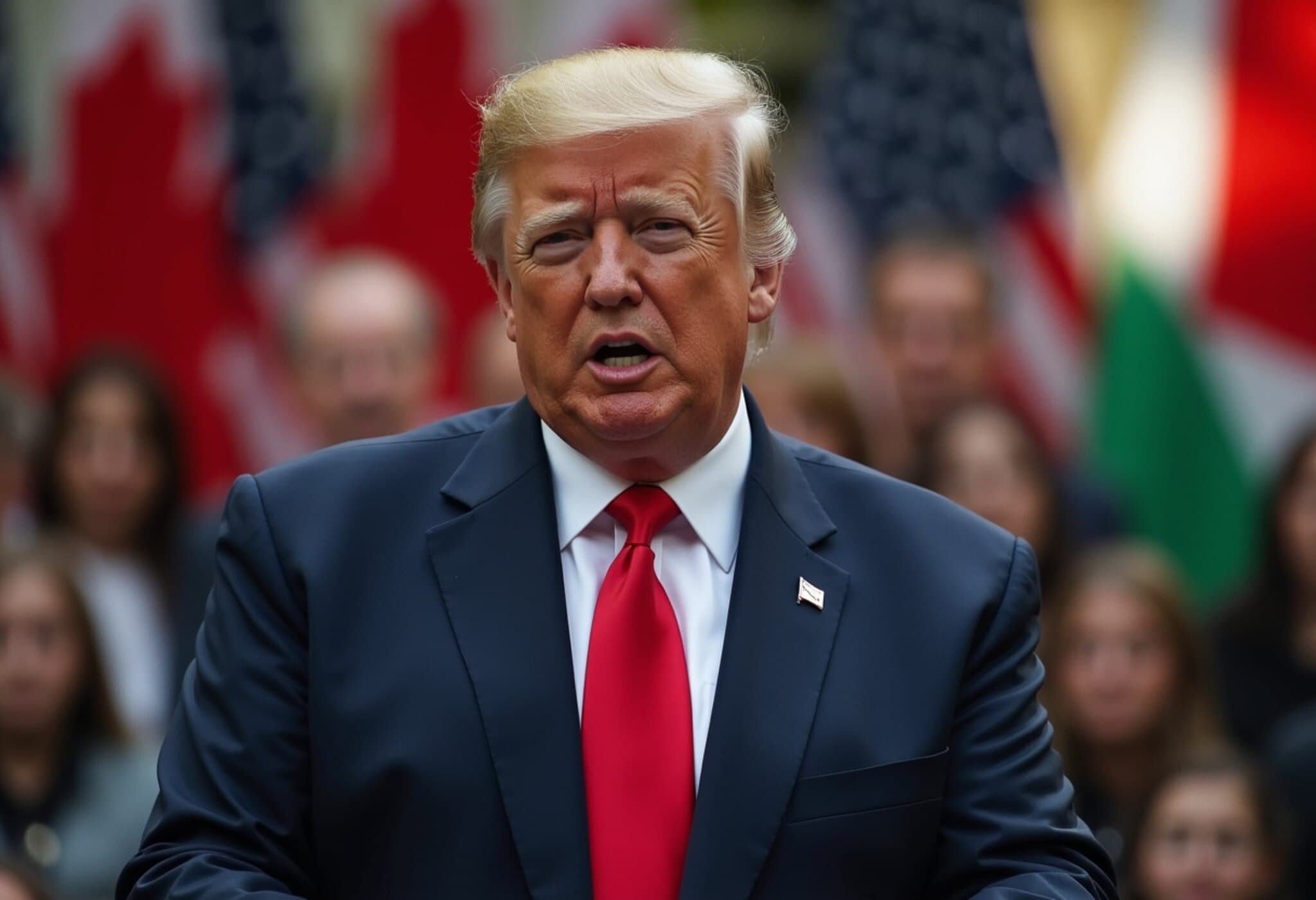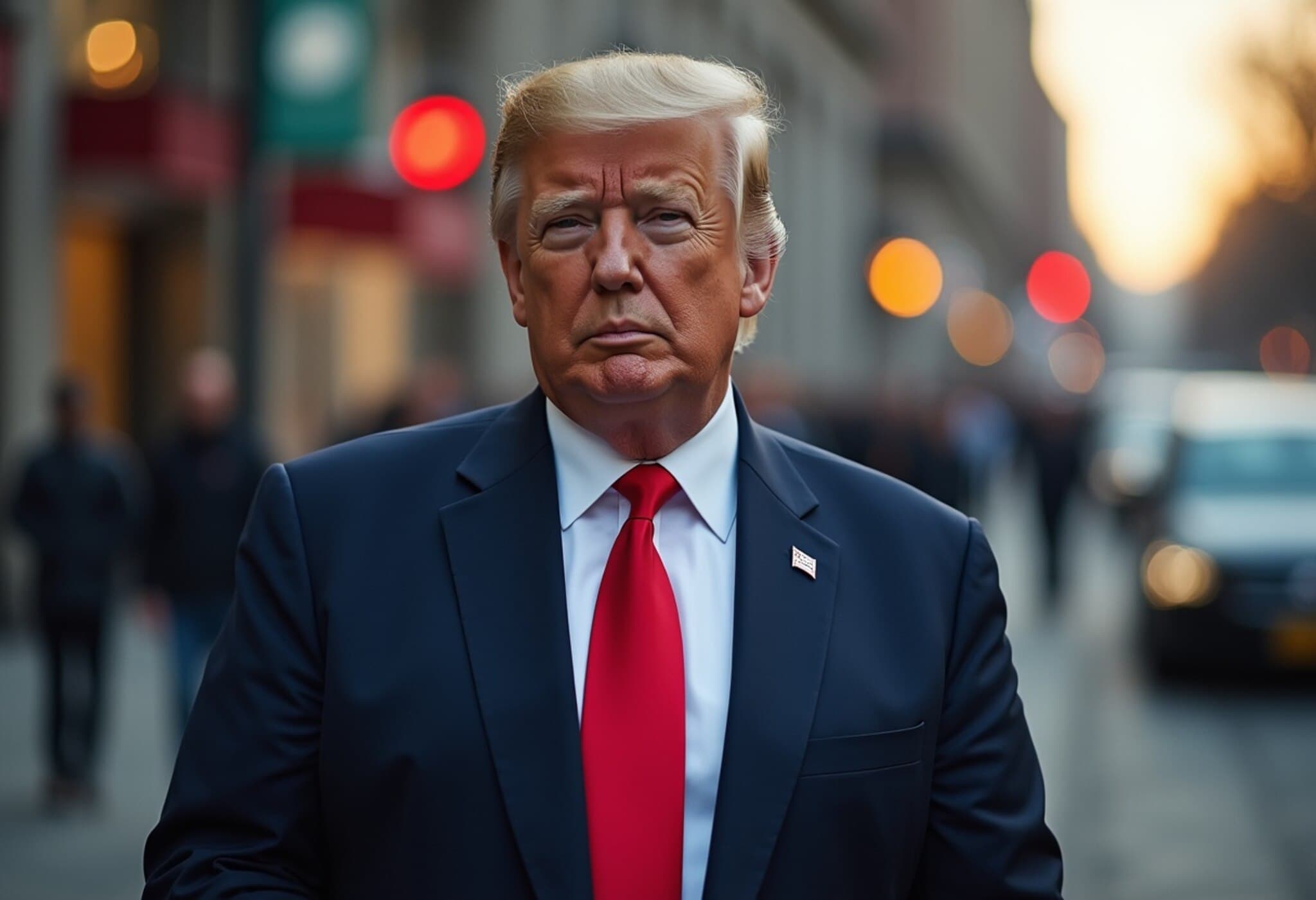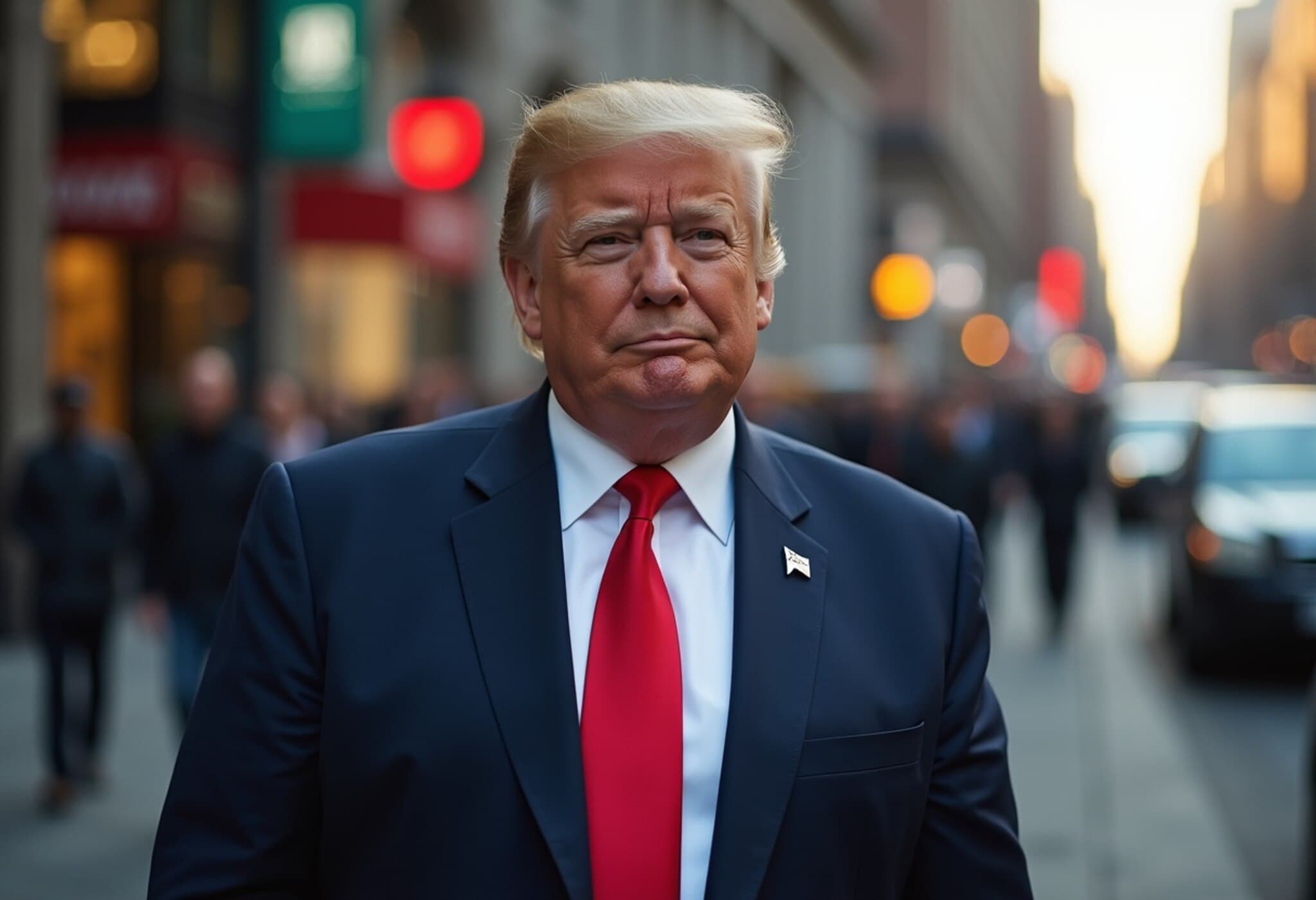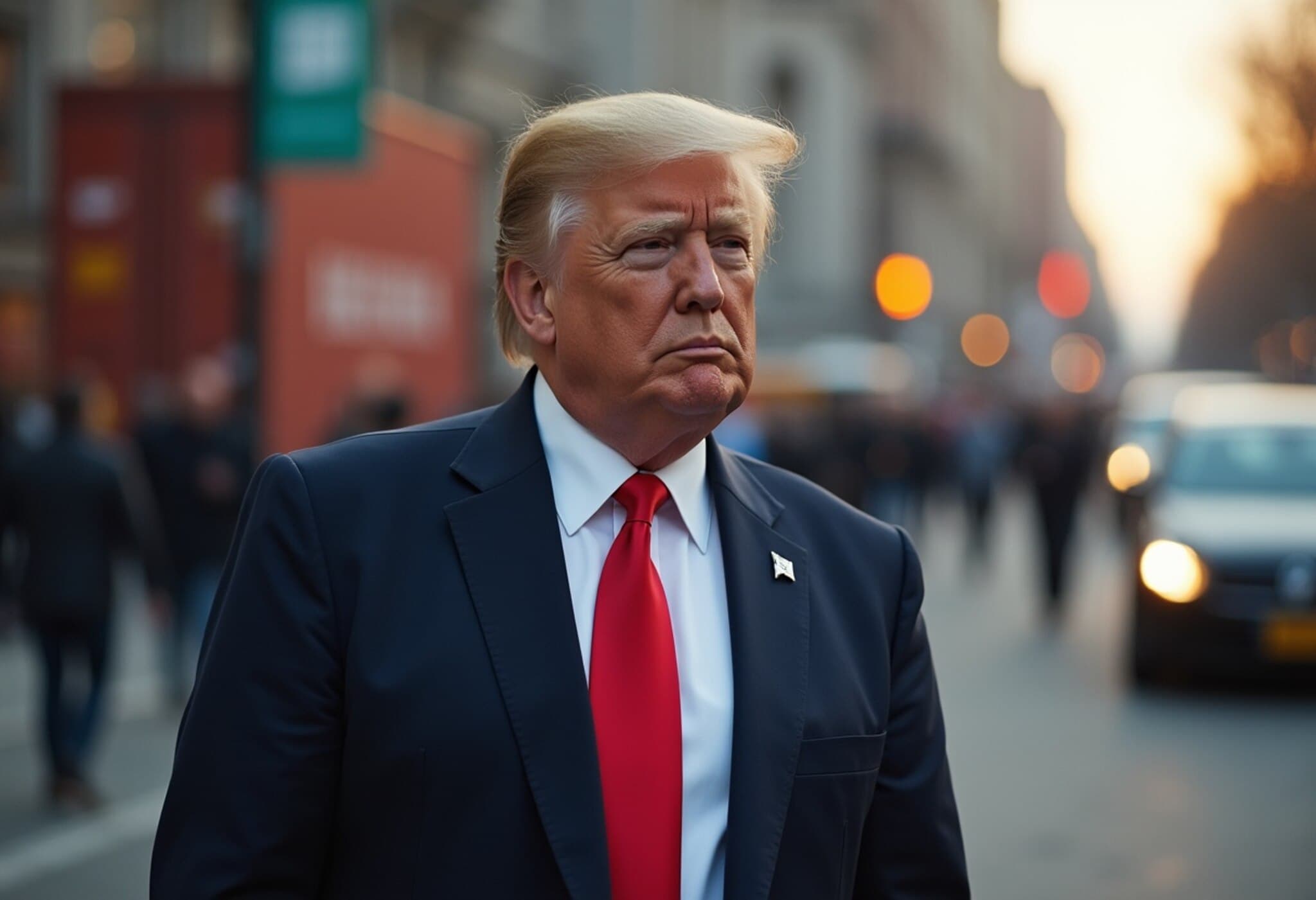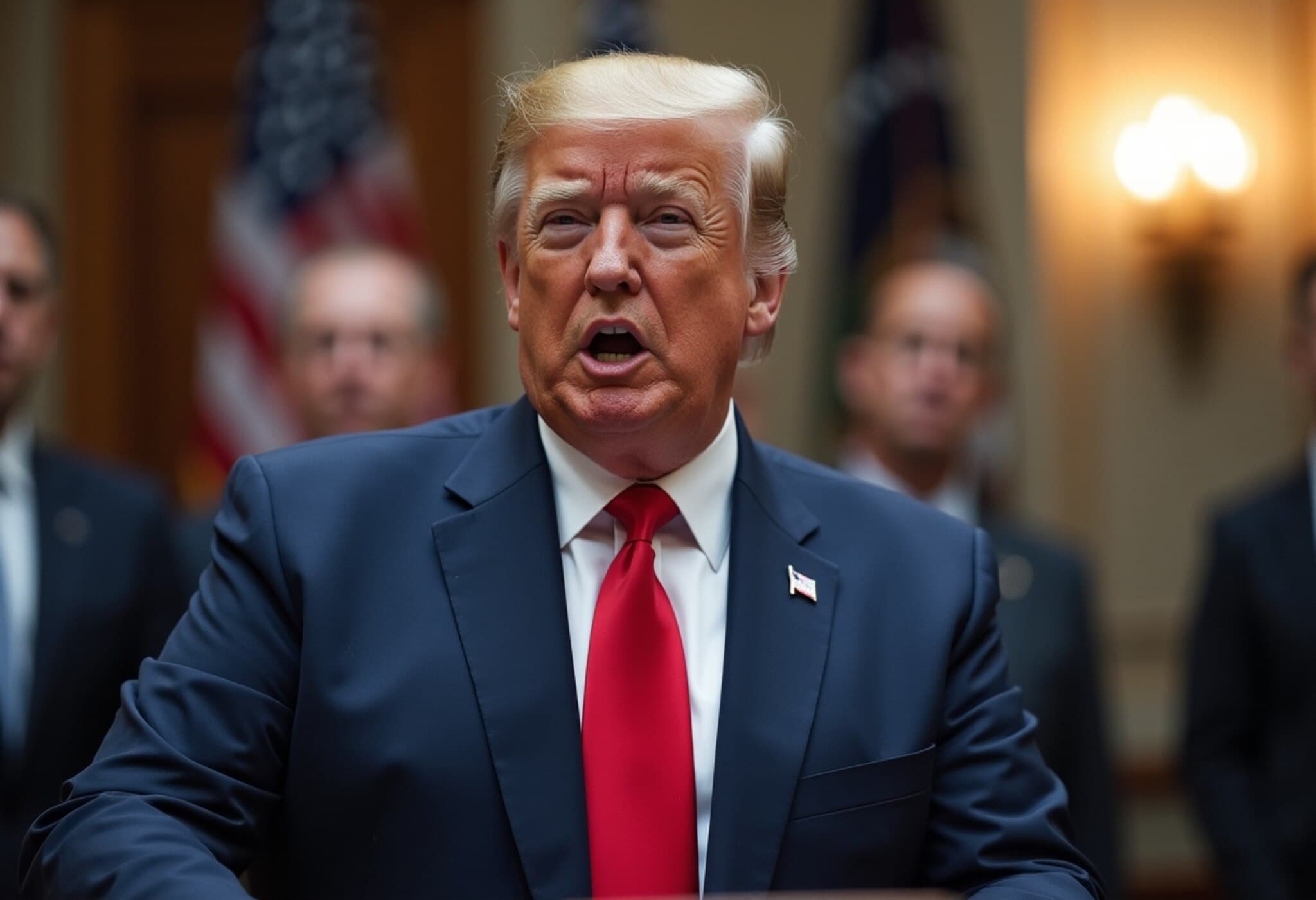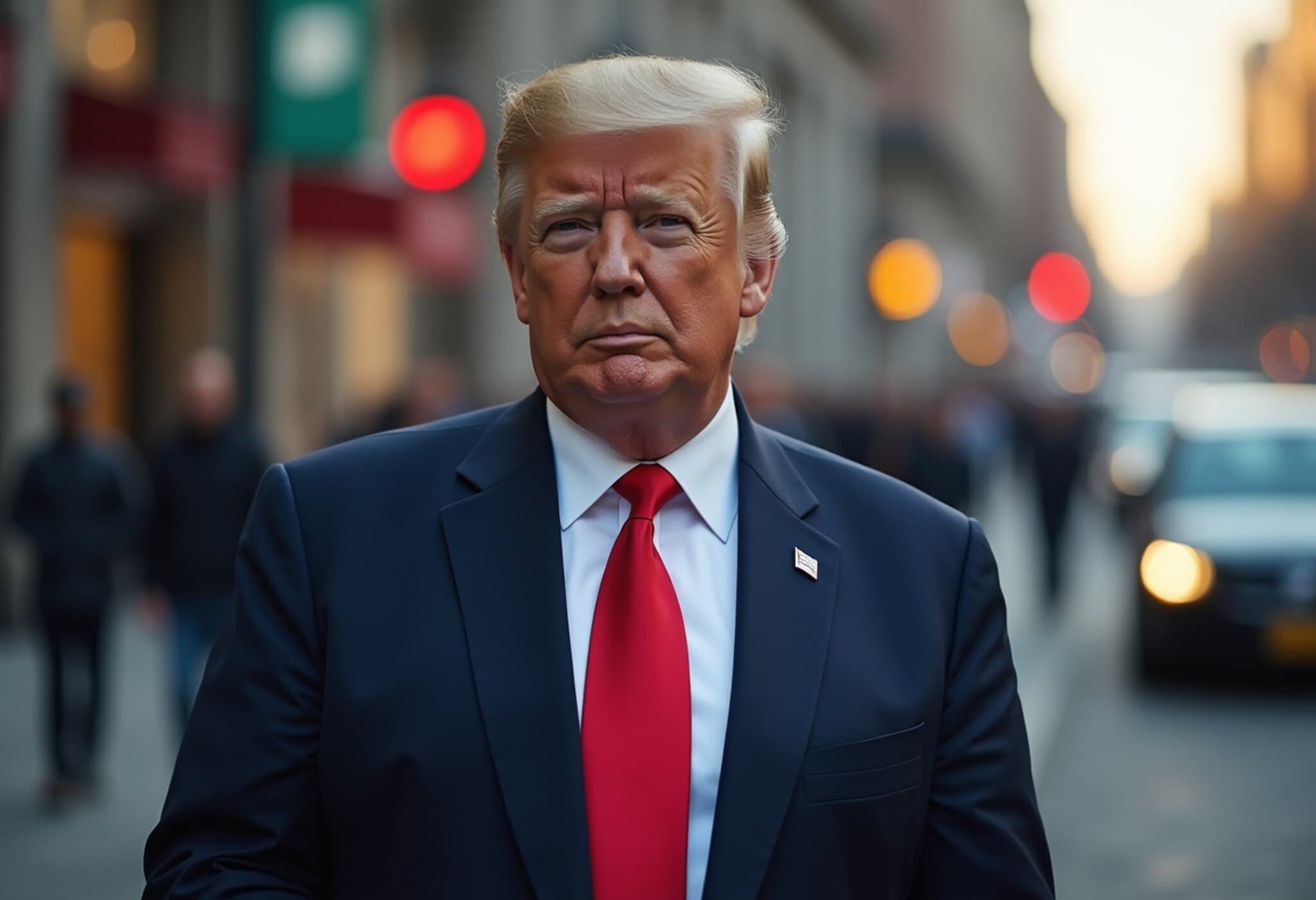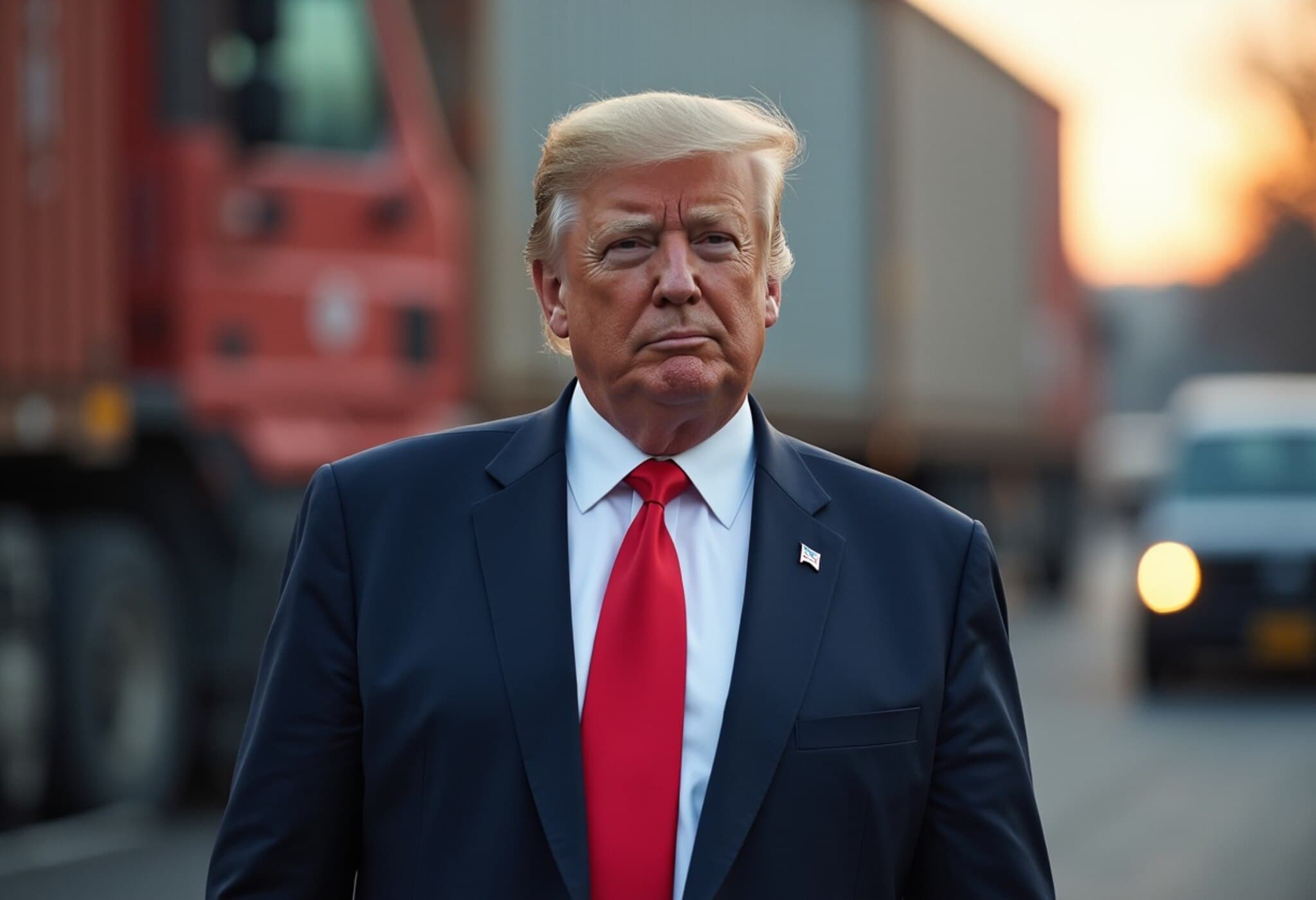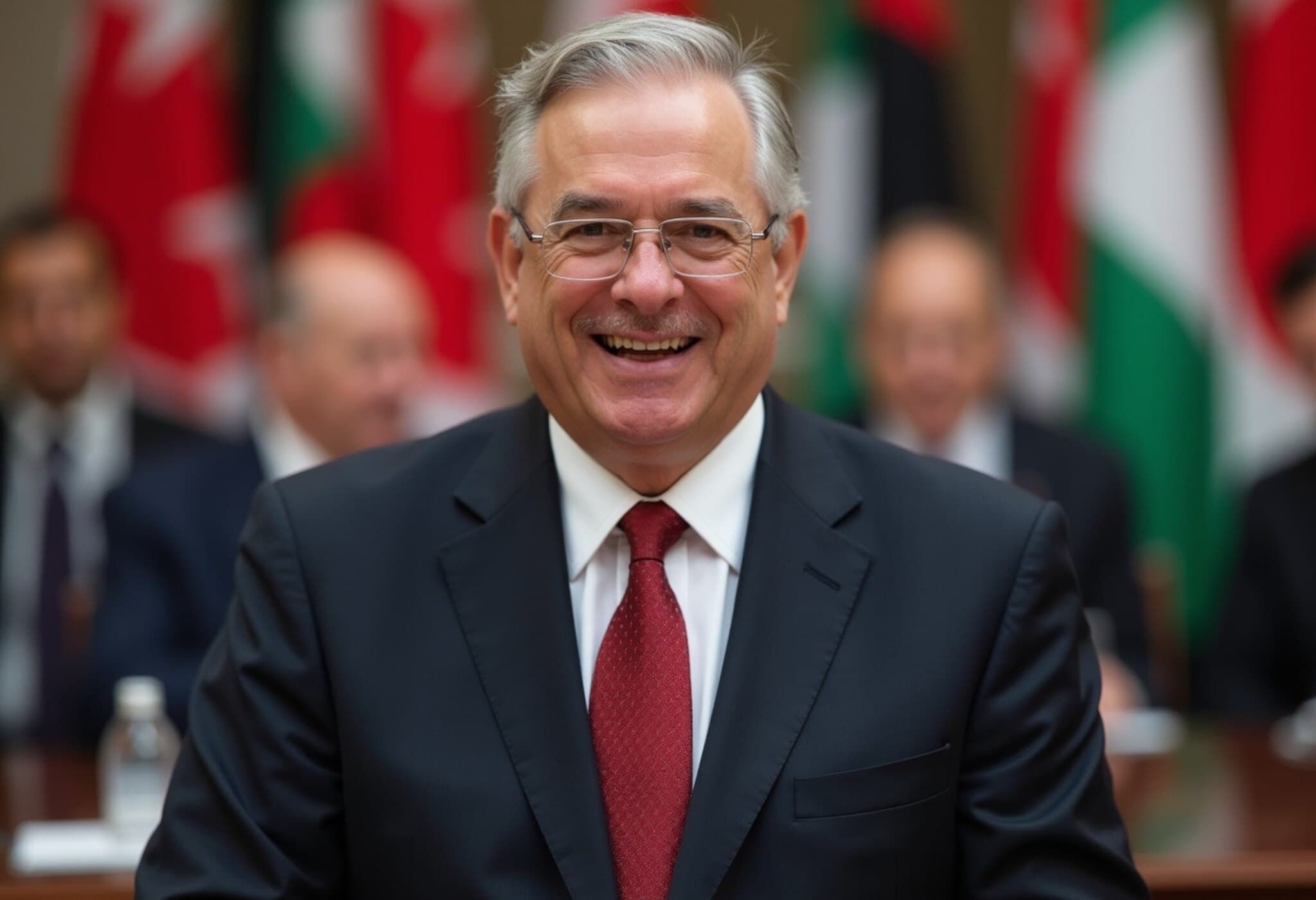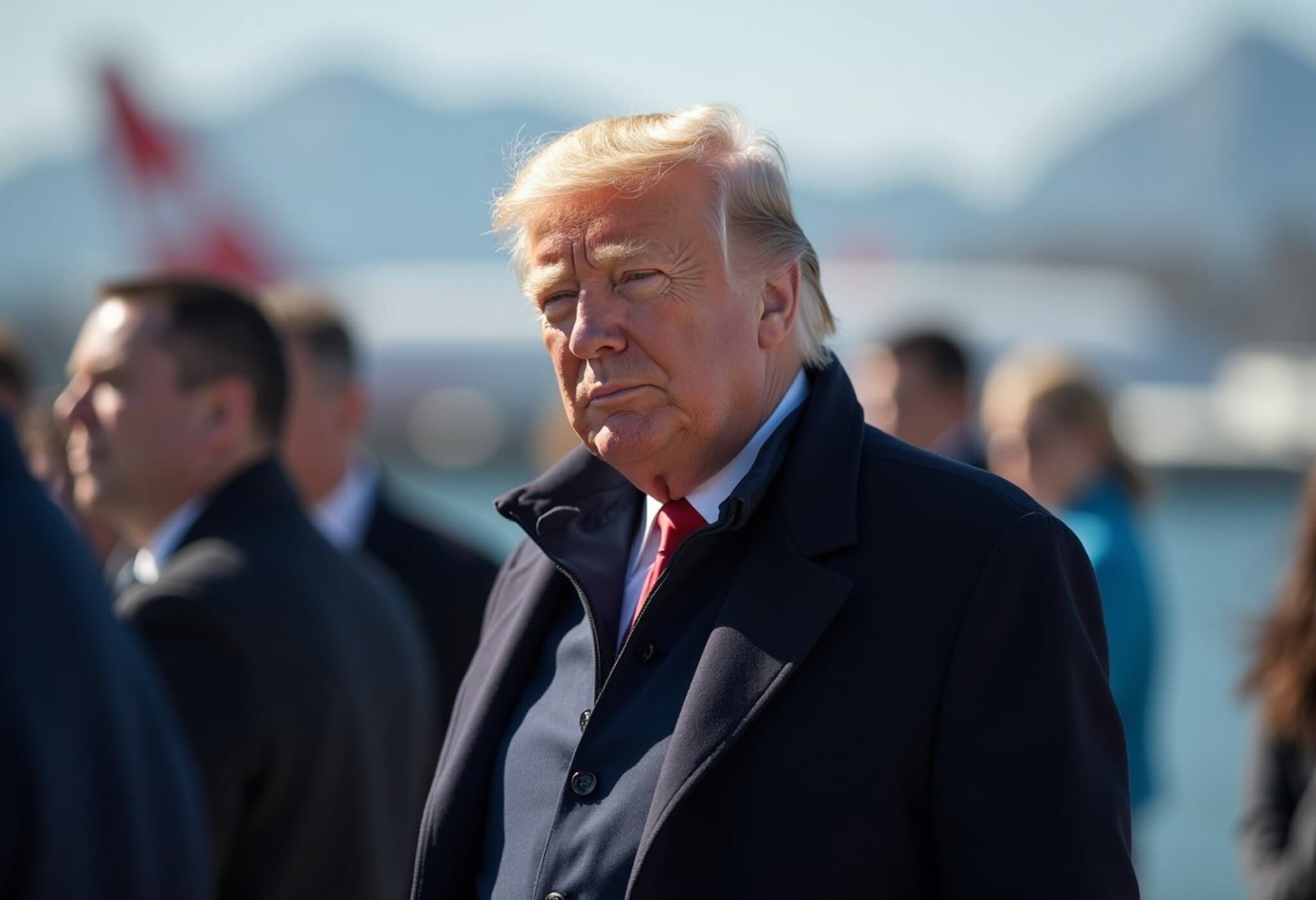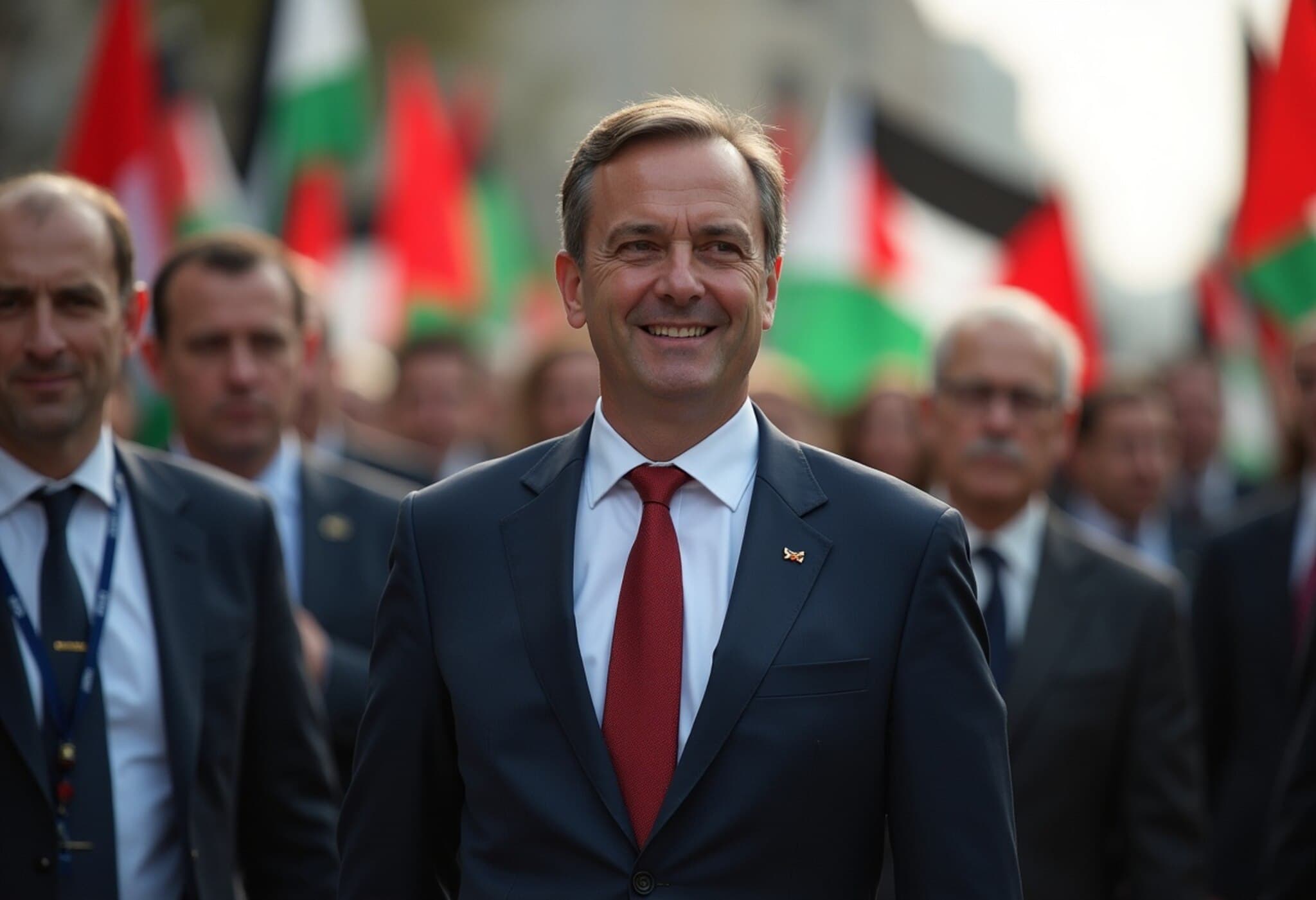Trump Warns of Trade Deal Challenges Following Canada’s Palestine Recognition
In a volatile twist to U.S.-Canada relations, former President Donald Trump has publicly criticized Canadian Prime Minister Mark Carney’s announcement to recognise Palestine as a state—warning that such a move could severely complicate future trade negotiations between the two North American neighbors.
Canada’s Diplomatic Shift and Its Implications
On July 30, 2025, Prime Minister Carney revealed that Canada may officially recognise the state of Palestine, contingent upon the Palestinian Authority meeting specific criteria, including holding democratic elections. This decision aligns Canada with a growing number of Western nations like France and the United Kingdom, who have taken similar stances in recent days amid escalating tensions in the Middle East.
Carney’s announcement signals Canada's intent to assert independent foreign policy priorities, diverging from traditional U.S. hesitations on Palestinian statehood recognition.
Trump’s Response: Trade Deal at Risk
Responding swiftly and firmly, Trump took to his social media platform, TruthSocial, shortly after midnight on July 31, expressing that Washington D.C. would find it “very hard” to finalize any trade agreement with Canada if the recognition proceeds. His statement was part of a broader pattern of heightened trade tensions under his administration, which has consistently leveraged tariffs as a tool to influence allies' policies.
Trump’s timing coincides with a looming August 1 deadline he set for countries to conclude trade negotiations with the U.S. government, intensifying pressure on Canada and others.
Tariffs: A Tool for Political Leverage?
In what some analysts see as economic diplomacy bordering on coercion, Trump warned of tariffs as high as 50% on Canadian exports – a staggering prospect considering Canada is the United States’ second-largest trading partner. Already, products from Canada face a potential 35% tariff beginning Friday if tensions escalate.
- Canada’s Exports: Include lumber, automotive parts, and energy products essential to U.S. supply chains.
- Economic Risks: Tariffs threaten to disrupt industries and raise prices for consumers on both sides of the border.
Broader Context: Shifting Alliances and Global Responses
Canada’s move comes amid an international wave of countries recalibrating their approaches to Middle East diplomacy. France’s President Emmanuel Macron recently extended recognition to Palestine, a move Trump dismissed as lacking significance. Meanwhile, UK Prime Minister Keir Starmer conditioned recognition on progress toward ceasefire talks in Gaza.
This diplomatic realignment highlights growing impatience with prolonged conflict and calls for more assertive international involvement, putting traditional U.S. foreign policy under scrutiny.
Expert Commentary: Trade vs. Diplomacy
Dr. Lisa Chen, a trade policy expert at Georgetown University, notes, "Leveraging trade tariffs to influence foreign policy decisions can backfire. Economies are deeply interconnected, and punitive measures risk alienating allies and disrupting supply chains." She adds, "Canada’s engagement with Palestine reflects a broader desire among allies to pursue independent diplomatic agendas, challenging U.S. monopoly on certain global issues."
Legal experts also highlight that while the U.S. can impose tariffs, it risks retaliation that could spiral into a broader trade war, harming American consumers and businesses.
What’s Next?
With the August 1 deadline fast approaching, Canadian-American relations face a critical juncture. Will Canada double down on its Palestine recognition amid U.S. pressure? Or will economic pragmatism temper diplomatic boldness? Observers are watching closely as this saga unfolds—a case study in how foreign policy and trade interests collide in an increasingly complex global landscape.
Editor’s Note
This episode reveals the intricate dance between diplomacy and economics that defines contemporary international relations. It raises important questions about the limits of trade as leverage in foreign policy, the sovereignty of allied nations in pursuing their own diplomatic paths, and the broader implications for peace efforts in the Middle East. As tensions simmer, one must ask: can trade tensions be resolved without sacrificing important geopolitical principles, or are economic sanctions becoming the new lingua franca of global diplomacy?

